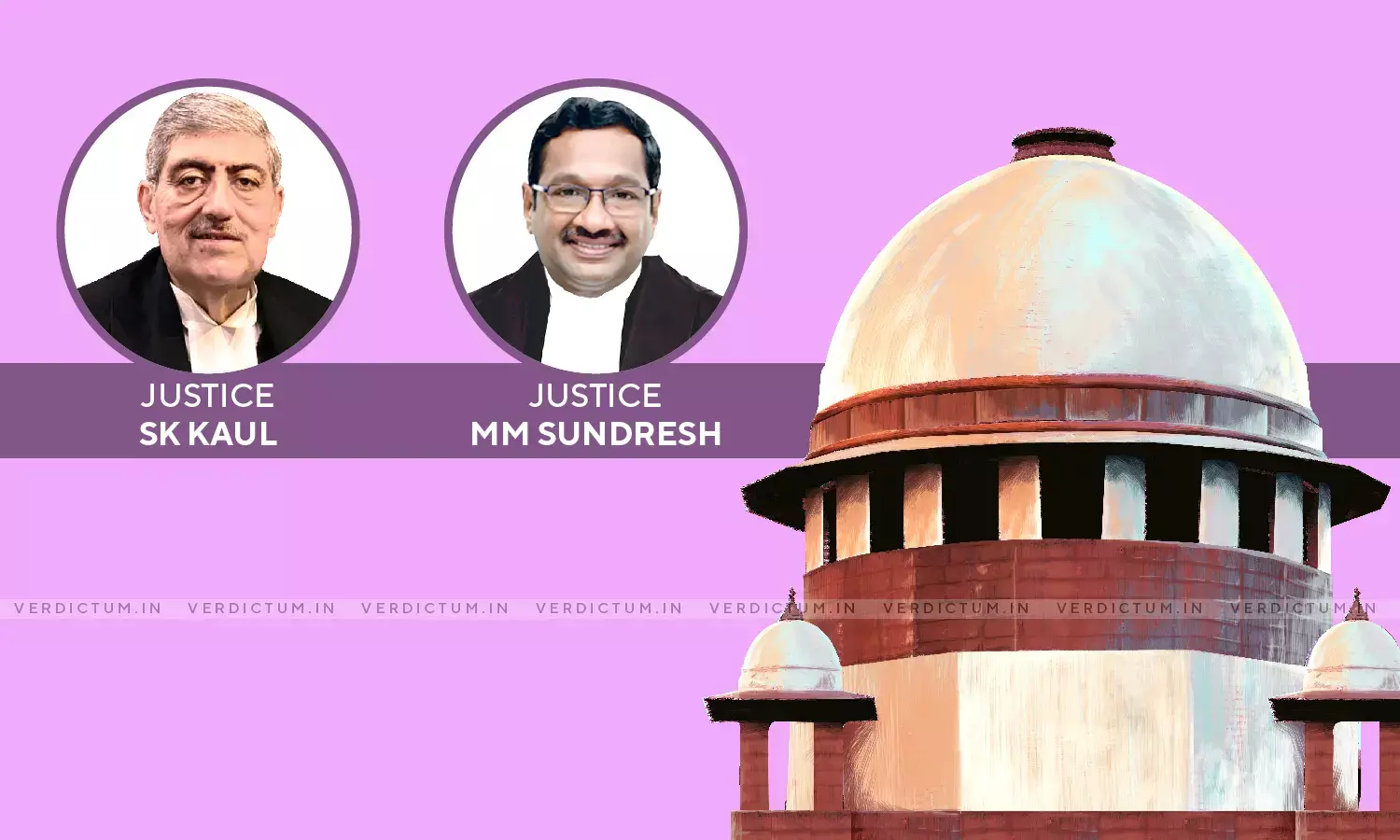"Shockingly Brazen", SC About Statements Dropping Names Of Persons Holding High Offices During Hearing
The Supreme Court today termed as shockingly brazen the statements made by one of the parties that dropped names of persons holding high offices during the hearings and "proudly proclaimed" that proceedings under the Enemy Property Act were initiated only at his instance on his meeting with a Union Minister.
The Apex Court, which was hearing a matter relating to the Delhi Rent Control Act 1958, noted that the rent controller had passed a detailed order and had made certain observations giving its indictment on the conduct of the respondent who dropped the names of not only a District Judge but also a High Court Judge, certainly not germane to the case.
"We are constrained to note that the respondent continued to drop the names of persons holding high offices even before us. He proudly proclaimed during his argument that the proceedings under the Enemy Property Act, as amended, were initiated only at his instance on his personally meeting with an Hon'ble Union Minister", a Bench of Justice S K Kaul and Justice M M Sundresh said in its Judgment.
"We can only adopt the process undertaken by the rent controller by not letting the said statement come in the way of deciding the matter on merits, despite it being unconscionable and shockingly brazen", it said.
The Apex Court delivered its judgement on an appeal against a judgment of the Delhi High Court.
It noted that the original owner of two shops, which were leased out to the respondent orally in 1970, had died after which his son became the owner both by inheritance and by virtue of a March 1980 award. The Bench noted that he expired in November 1986 and the appellant, who claims through the award and inheritance by operation of law, had filed the eviction petition in 2014.
The respondent thereafter filed an application seeking leave to defend raising three primary contentions, including that the property actually belongs to the Government of India under the Enemy Property Act, 1968. The rent controller had dismissed the application following which the respondent had approached the high court invoking the proviso to section 25B(8) of the Act.
The Bench noted in its verdict that despite holding that the respondent cannot question the title of the appellant, has filed a suit acknowledging the said factum, the revision was allowed on the premise that there are triable issues.
During the arguments before the Court, the respondent, who had appeared as a party-in-person, submitted that there was a serious cloud over the title of the appellant as some of the owners of the properties are living in Pakistan.
He also argued that the authority constituted under the Enemy Property (Amendment and Validation) Act, 2017 had recognized his status as its tenant.
"We are, in fact, more concerned with the scope and ambit of the proviso to Section 25B(8). The proviso creates a distinct and unequivocal embargo by not providing an appeal against the order passed by the learned Rent Controller over an application filed under sub-section (5)", it said.
The Court held that, "The intendment of the legislature is very clear, which is to remove the appellate remedy and thereafter, a further second appeal. It is a clear omission that is done by the legislature consciously through a covenant removing the right of two stages of appeals".
It noted that proviso to section 25B(8) gives the High Court exclusive power of revision against an order of the rent controller, being in the nature of superintendence over an inferior court on the decision-making process, inclusive of procedural compliance. It said the High Court is not expected to substitute and supplant its views with that of the trial court by exercising the appellate jurisdiction.
"There is no need for holding a roving inquiry in such matters which would otherwise amount to converting the power of superintendence into that of a regular first appeal, an act, totally forbidden by the legislature", the Bench held.
The Bench observed that the High Court had proceeded to allow the revision by treating it like an appeal. "We can only reiterate that we do not find any perversity in the decision rendered by the rent controller and the high court has not only certainly abdicated its jurisdiction, but also exceeded in a way", the Court said while allowing the appeal.
The Bench set aside the Judgment of the High Court and restored the order passed by the rent controller.
Click here to read/download Judgment



